Waste Management. Firsthand Experience.
No one word can be so proved, as action does. And no action has so wide perspective as action on yourself does.
A journey of a thousand miles begins with one step.
This essay for those, who have forgotten that any changes begin with themselves and that there are practical ways to reduce debris on the planet here and now;
for those, who want the everyday life become more environmental friendly and does not yet know about ways to reduce household waste or wants to learn real examples of such ecological behavior;
for those, who already is on the sustainable way, as a support and a reminder that we are getting bigger!
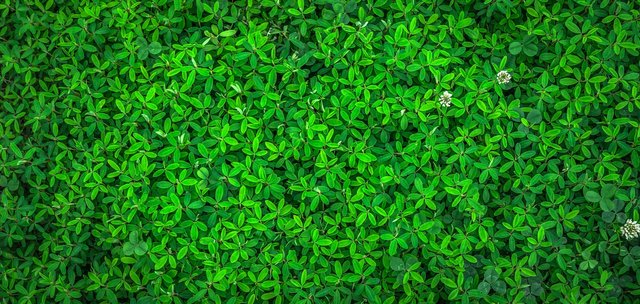
In my article on waste management, I talked about the two ways we can manage waste: the reduction of waste and the minimization of their formation.
Today I want to share with you how we in our family reduce the amount of our daily waste.
Of course, we are not magicians and do not make our garbage disappear.
We deal with the generated waste in such a way that as little waste as possible falls into the soil and landfills.

As discussed in the article on plastic waste, polymers constitute the predominant share of the world's garbage.
In Ukraine, the garbage sorting system has not yet reached such an individual consumer grade as in developed countries, where the state initially provides only one option for handling waste: sort it into different containers for further transfer to the garbage recycling company.
In our family we collect plastic, sorting it by type, on its own initiative:
PET
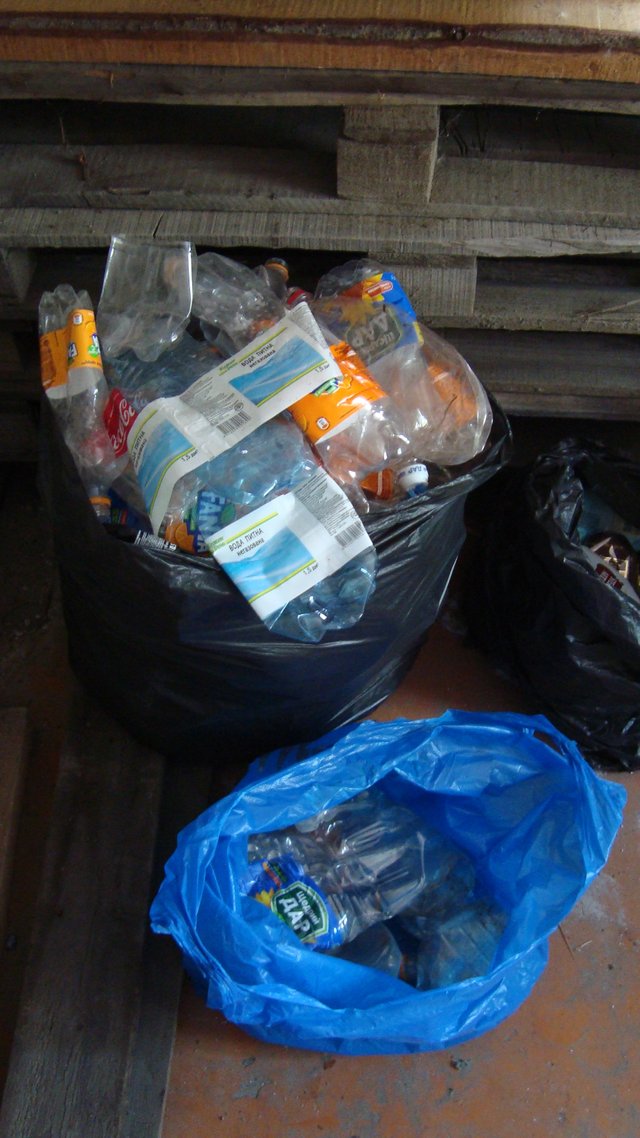
and LDPE (Low Density Polyethylene)
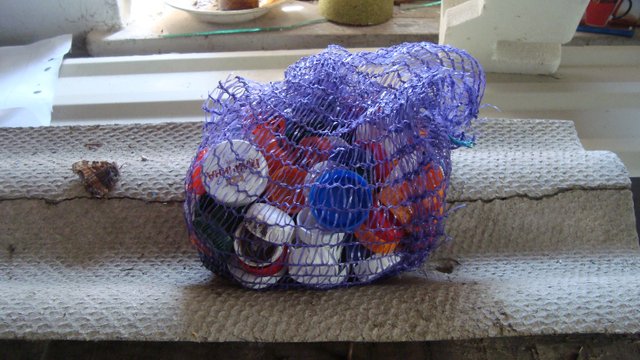
Both of these types of plastic are accepted near our house by a man in his garage. This guy not only surrenders these sorted waste for processing, he also pays us for what we brought, depending on the weight. Different garbage worth differently and this, of course, is not a way to live, but for some in our country it is quite a way to survive.
So, 1 kg PET - 4 hryvnia=$0,15=0,1 STEEM
1 kg LDPE - 7 hryvnia=$0,27=0,2 STEEM
For our part, we do this not for the sake of money, but such a bonus is always pleasant.))
Aluminum,
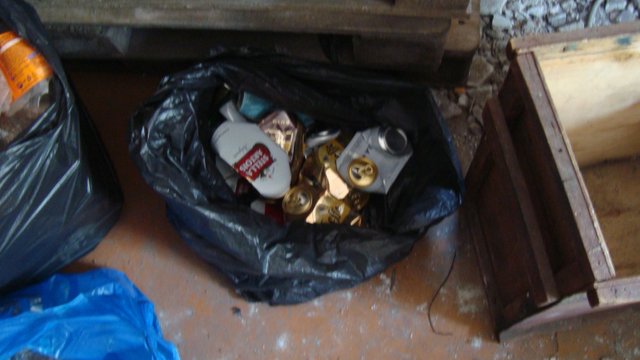
too, we collect separately.
Its cost in the "garbage market" for 1 kg - from 25 hryvnia = $ 0.95 = 0.7 STEEM
Tin cans
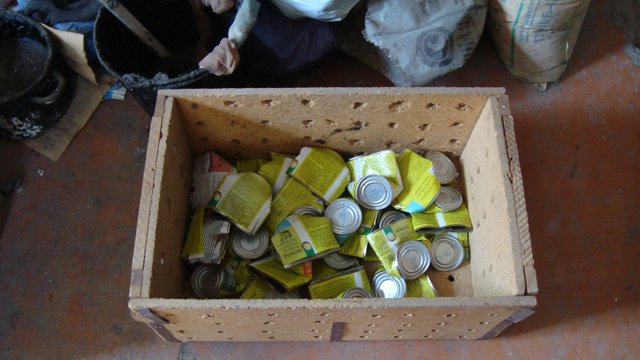
are accepted as a ferrous scrap, 1 kg of which costs less than the lids from bottles - 6 hryvnia = $ 0.23 = 0.18 STEEM
We also collect the glass and hand it out separately, but its price is so low (except for a few types of dark bottles, are accepted per item) that it's even funny to calculate these pennies, if it have not been funny so far))
And, of course, paper,
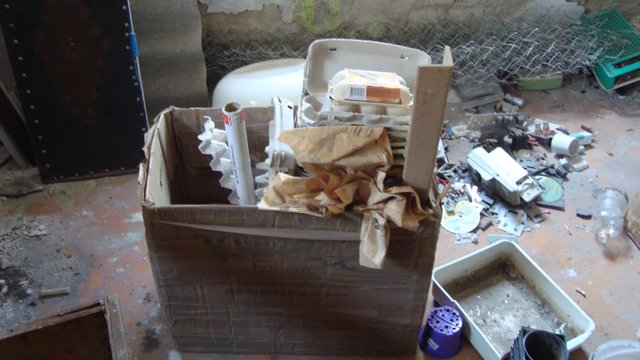
which, in my opinion, preserves one of the most valuable resources - the Forests.
However, its price is almost equal to the price of a plastic bottle: 1 kg = 2.7 hryvnia = $0.1 = 0.08 STEEM
To separate all debris from food and other organic waste, we collect all the organic matter and food residues in a separate small container, which from time to time is emptied into a pit that was dug in the garden.
Next spring this pit will become a source of natural fertilizers, and our pets - Achatina - are eagerly eat rests of fresh vegetables and fruits.
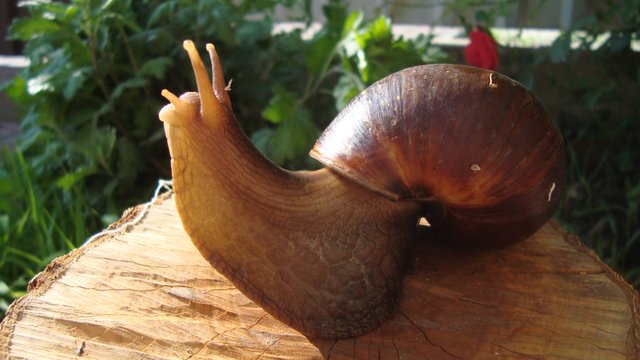
Ecological life is available to everyone right now.
You need only to start and you will see how the world responds to your sincere impulse!
Describe your own ecological approach in everyday life in the comments - it will be great possibility to share good ecological practices.
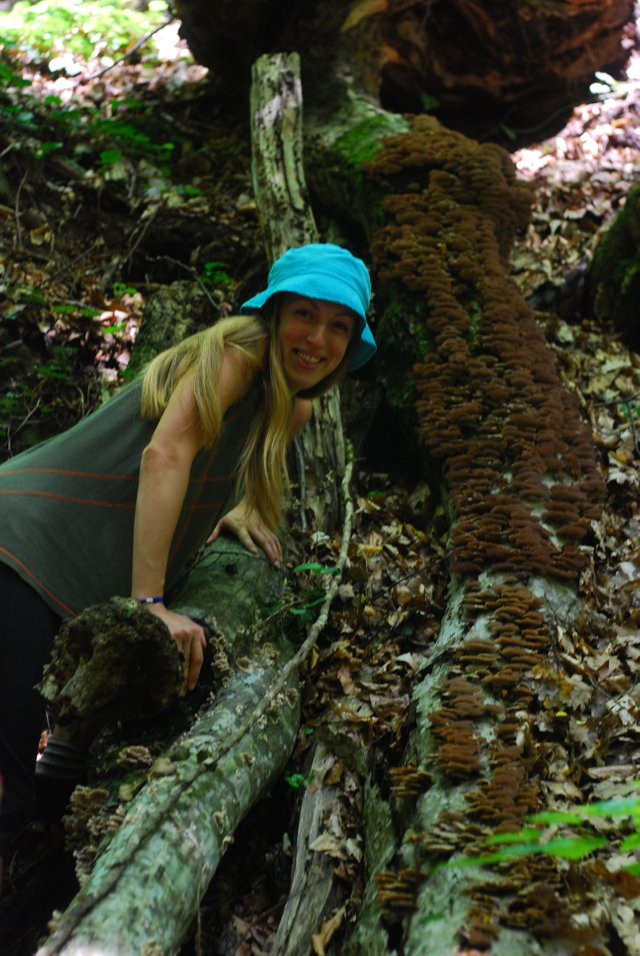
Ksu'
For the Benefits of All Living Beings!
You got a 25.00% upvote from @authors.league courtesy of @dimarss!
You received a 10.0% upvote since you are not yet a member of geopolis and wrote in the category of "ecology".
To read more about us and what we do, click here.
https://steemit.com/geopolis/@geopolis/geopolis-the-community-for-global-sciences-update-4